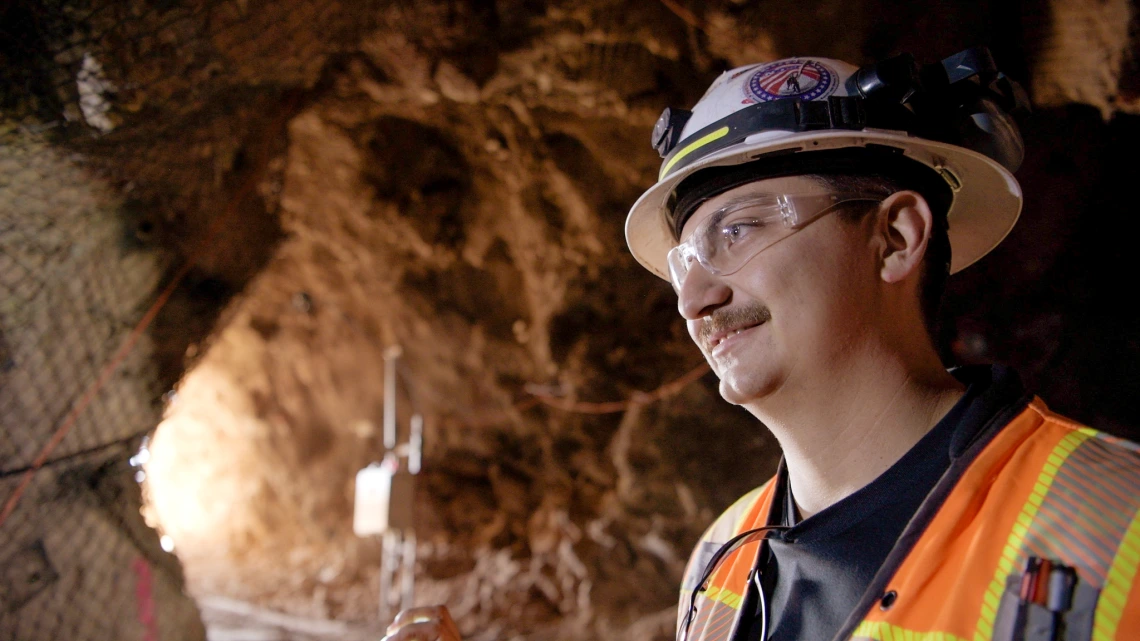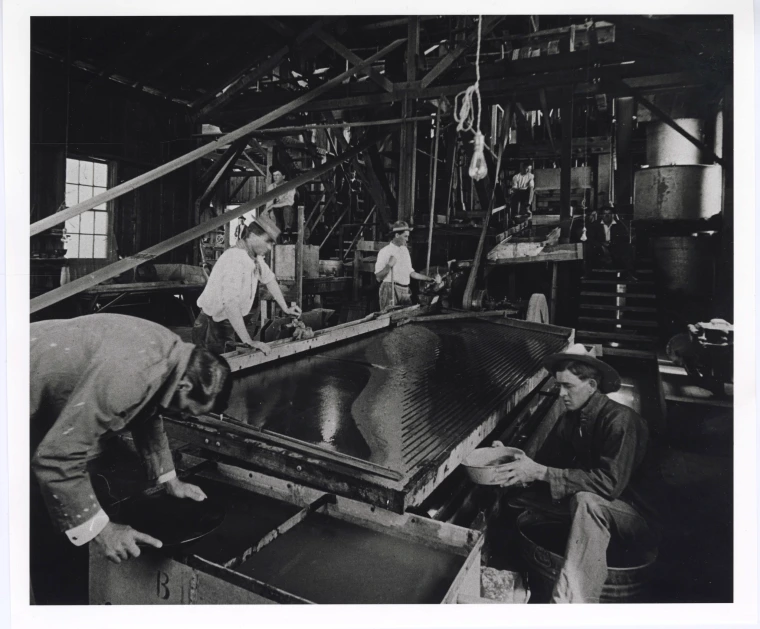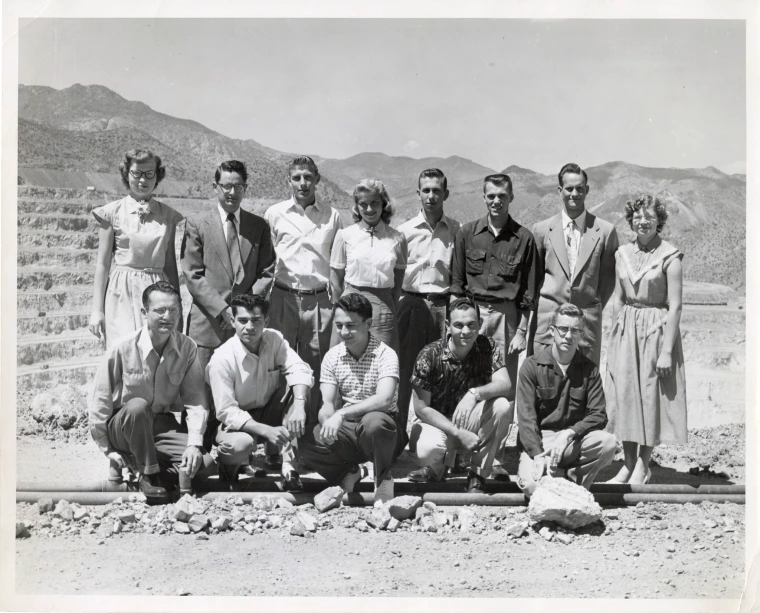Deep Deposits
Forty years later, an endowment established by geologist and mining legend David Lowell ’49 and his wife, Edith ’48, continues to support one of the most unique programs in geosciences.

In 1985, geologist David Lowell ’49 established an endowment through the University of Arizona Foundation to support a project called Field Camp.
Lowell, who had built his career on the discovery of more than a dozen major mineral deposits across the world, thought students studying geosciences would benefit from balancing academic perspectives with the perspectives of industry professionals working in the field.
“I know from talking to him personally that he was always quite interested in enhancing professional development,” says Peter DeCelles, a U of A geosciences professor who has helped run Field Camp for nearly 25 years. “I think he had a pretty broad view of how advantageous it could be when professionals interact with academics, and vice versa.”
Field Camp — a five-week intensive course established in the early 1960s to give geosciences students hands-on experience at an old ranch west of the Chiricahuas — seemed like an obvious fit. “It was a way to get a geologist — who has a Ph.D. or not, doesn’t really matter — to come out and teach undergraduates in the field,” DeCelles says of the endowment, “a chance for students to interact closely with someone who works in the business that they might end up being employed in.”
Image

| Image

|
Forty years later, an endowment established by geologist and mining legend David Lowell ’49 and his wife, Edith ’48, continues to support one of the most unique programs in geosciences.
In 1985, geologist David Lowell ’49 established an endowment through the University of Arizona Foundation to support a project called Field Camp.
Lowell, who had built his career on the discovery of more than a dozen major mineral deposits across the world, thought students studying geosciences would benefit from balancing academic perspectives with the perspectives of industry professionals working in the field.
“I know from talking to him personally that he was always quite interested in enhancing professional development,” says Peter DeCelles, a U of A geosciences professor who has helped run Field Camp for nearly 25 years. “I think he had a pretty broad view of how advantageous it could be when professionals interact with academics, and vice versa.”
Field Camp — a five-week intensive course established in the early 1960s to give geosciences students hands-on experience at an old ranch west of the Chiricahuas — seemed like an obvious fit. “It was a way to get a geologist — who has a Ph.D. or not, doesn’t really matter — to come out and teach undergraduates in the field,” DeCelles says of the endowment, “a chance for students to interact closely with someone who works in the business that they might end up being employed in.”

Over time, the focus of the endowment shifted, in part, to track with student interest. “We’ve seen fewer and fewer students who had much interest in mining until recently,” DeCelles says. “With all the political-economic turmoil around critical minerals and things like that, it’s back on [students’] radar.”
In the meantime, the original endowment continued to grow, and more importantly, the Lowell family has let the department be flexible in how they spend it. “We try to keep the operation very cheap so that students can afford it,” DeCelles says. “Faculty don’t take salaries. Our expenses are very simple: food, vehicle rentals from the motor pool, gas to run them, some campsites. If we don’t have a big enrollment — our break point is about 15 students — the endowment allows us to fill the gap. That’s been a really huge help for us.”
Southern Arizona has gotten too hot to host the camp (“People just can’t bail out in the middle of the semester and then disappear for five weeks, so it’s pretty much a summer-only kind of situation,” DeCelles says), so Field Camp now goes north, making a counterclockwise loop from Tucson up to western Wyoming through northern Utah and Nevada, sometimes traveling all the way into California before coming home. (It also keeps things fresh for the instructors — and, by extension, the students.)
The 1985 endowment was one of the first established through the University of Arizona Foundation. The Lowells later established the David and Edith Lowell Endowed Chair for Mining and Geology at the College of Engineering, one of the more than 100 endowed positions established during the Fuel Wonder campaign, which reached $2.6 billion in calendar year 2025.
John M. West ’96, CFA at Flatrock Wealth Partners and chair of the Investment Committee of the University of Arizona Foundation Board of Trustees says these are the kinds of gifts that, with good management, make an intergenerational impact, demonstrating “the quiet miracle of a well-managed endowment,” he says. “They deliver real benefits today while preserving opportunity for the future.”
David Lowell remained busily engaged with his work and community until his death in 2020 at the age of 92. (According to his obituary, he spent part of the day he died planning a trip to Turkey to research mineral projects.) Other major gifts to the U of A include funding for the Lowell-Stevens Football Facility (David played varsity football; Edith lettered in field hockey and intramural sports) and the Lowell Institute for Mineral Resources. His memoir, “Intrepid Explorer: The Autobiography of the World’s Best Mine Finder,” ends by noting, “The University of Arizona has been an integral part of our lives, and Edith and I find great satisfaction in supporting its programs.” Their gifts give on.

